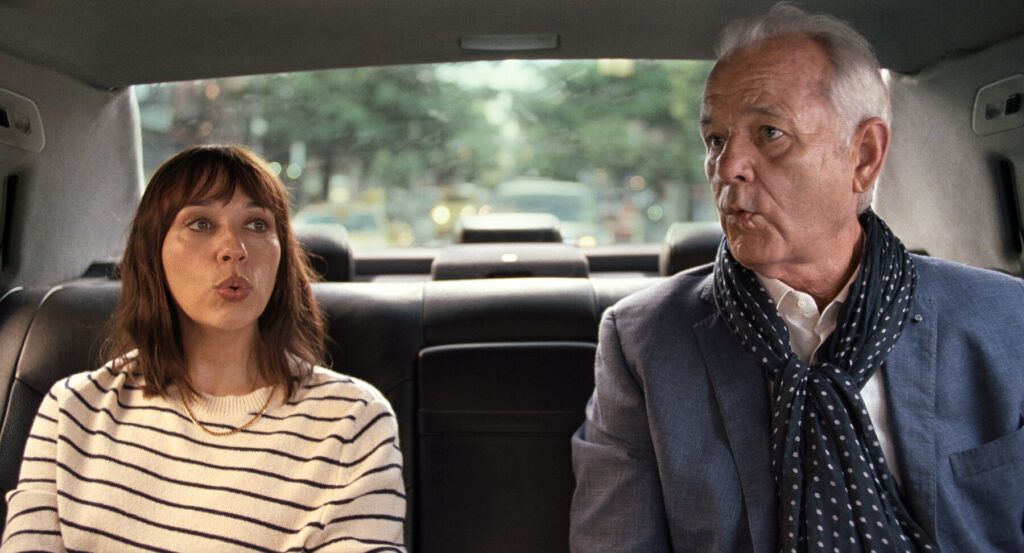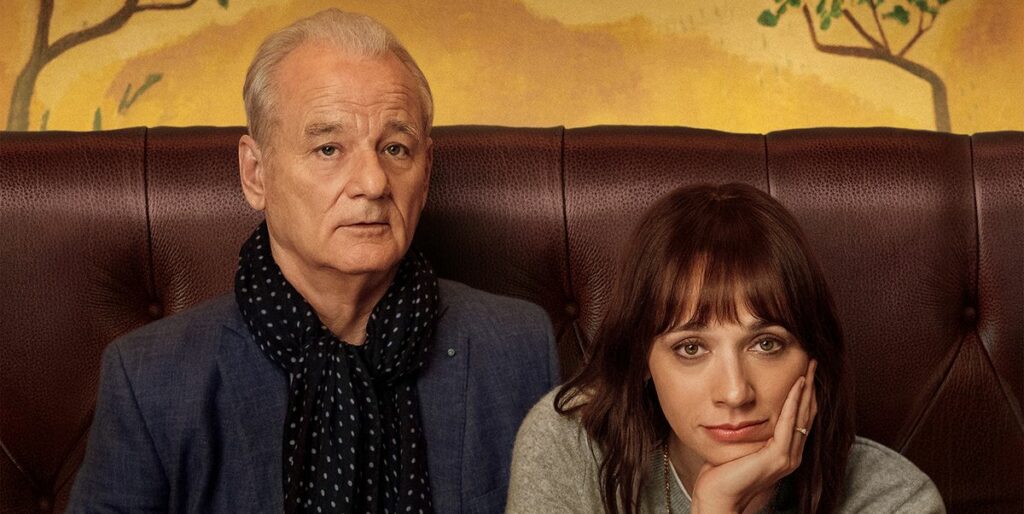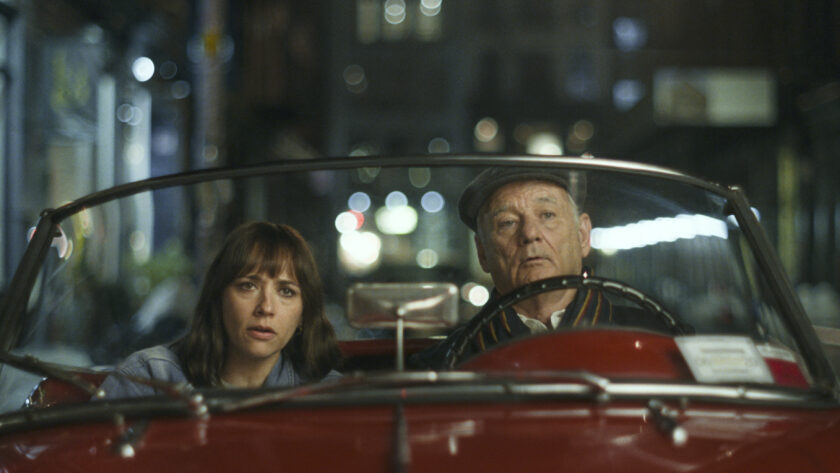Editor Lydia De Matos scrutinises Sofia Coppola’s disappointing latest feature.
You know how some films just kind of feel like they were made for television? They seem either like an episode of an actual TV show, or one of those made-for-TV films whose presence becomes distinctly unavoidable around Christmas. You’re sitting there, that glorious big screen in front of you, the credits rolling, and you can’t help but think God, what was the point of all that? You leave the cinema, lamenting the seven to twelve pounds now missing from your bank account, and go home to either ruminate over your mediocre experience all evening, or (preferably) forget it immediately. I find it my unfortunate duty to inform you that Sofia Coppola’s newest, On the Rocks, is one of those films.
Now, I’m not saying this to snark on television. Unlike some, I don’t consider it an inherently lesser art form than cinema. I don’t even mean to dunk on made-for-TV films; I haven’t seen that many, but I’m sure there are some great ones out there, even if their low budgets, rushed production periods, and tendency toward lazy writing undoubtedly makes most of them far from cinematic gems.

Of course, it’s got a bigger budget and more technical competency behind it than most made-for-TV stuff. But neither of those things can make a film less painfully boring than it already is, or make it live up to its evident potential. Perhaps it would have been better if I had gone in with lower expectations. At the very least, it would’ve saved me from that most dreadful of feelings: disappointment. The idea of a bittersweet Sofia Coppola comedy about parental baggage, starring Bill Murray and Rashida Jones? Positively delightful! So how on earth did On the Rocks end up feeling like the filmic equivalent of a half-hearted shrug?
Since the premise of the film is rife with potential for a brilliant feature, I’m tempted to say that a lot of the fault lies in its underwhelming ending. Laura (Jones) is a New York-based writer who struggles to write her novel as she deals with the day-to-day responsibilities of parenting. Meanwhile, her husband Dean (Marlon Wayans — yes, that’s right, Coppola finally found it within herself to cast a Black actor) is busy with some exciting startup, and is therefore constantly travelling for work. I’m not entirely sure what the startup does — it might be tech, or social media, or publicity. Frankly, I felt myself drifting off the moment he started talking about Instagram engagement. One night, groggy with Xanax after a flight back from London, Dean collapses onto the bed and kisses his wife. Happy to see him, she says hello. At this he stops with an ‘Oh’, giving her a far too deflated look of recognition before rolling over and passing out. The next morning, she finds a woman’s toiletry bag containing a bottle of body oil in his suitcase. And so, down she goes into a rabbit hole of nagging self-doubt and self-questioning.
Arriving in style to push her even further down that rabbit hole is Bill Murray’s Felix, Laura’s wealthy art-dealer father. Having cheated his way into breaking up his own marriage, Felix has become a silver-fox; incredibly witty and wildly misogynistic, he’s simultaneously the kind of person you’d love to know but hate to be around. His self-indulgent smugness, tendency to hit on every single woman he sees, and belief that men are incapable of monogamy makes it easy to see why Laura might have been so rash to assume her husband’s infidelity.

Convinced of Dean’s cheating practically before Laura even opens her mouth to describe her worries, Felix enlists himself as chief detective and whisks his daughter off into a farcical surveillance caper, whizzing around the city in a blood red Alfa Romeo roadster and peering at club entrances through binoculars. At least this sequence provides some much-needed fun: I mean, who wouldn’t want to be one half of a spy duo with Bill Murray?
Regardless, the rest of the film is certainly not fun enough to make it a romp, and there’s so little substance behind it that the writing feels careless, almost lazy. Sure, it asks some interesting questions about familial relationships, but it doesn’t seem bothered to answer those questions in interesting ways, or even to answer them at all. The result is a film that feels deflated, and rather pointless — not the kind of work we’ve come to expect from Coppola.
The visuals don’t exactly help. It’s not that they look bad, per se, just a little too clean and a little too flat. I was honestly surprised to discover that On the Rocks had been shot on film, and that Coppola had worked with Director of Photography Philipe le Sourd no less, whose richly textured work I had adored in The Beguiled. There were a few brief moments of visual delight, namely a beautiful close-up of Jones with her head in her hands that I could have stared at for hours, and of course that nighttime car chase smartly used for the trailer.
The performances are strong, and the familial chemistry between Jones and Murray is wonderful to behold. But not even they can save On the Rocks from its fatal lack of substance.




